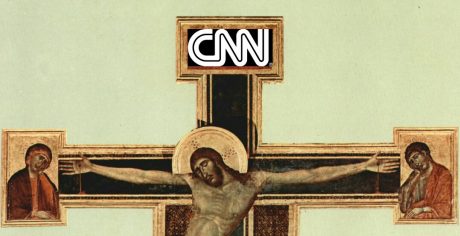
A serious effort to understand the true causes behind the purported proliferation of “fake news” in the Philippines begins with an examination of what motivates the average social media user to click the “Like”, “Retweet”, or “Forward” buttons on their devices. Those who decry the “ignorance” of the average social media user who mindlessly contributes to propagating content of dubious quality are, of course, right. There is an element of ignorance involved in consuming and spreading fake news.
But creating “fake news” is also an art. The reason people like and spread “fake news” is because of how cleverly it is crafted. Often content considered to be “fake news” is amusing or taps into the same aspect of our minds that finds pleasure — or reassurance — in believing in myths and superstition. Indeed, a lot of memetically-successful “fake news” content involved things people wanted to be true.
I will have to agree then; that “fake news” cannot be compared to fiction. The two are as different as apples and oranges.
What “fake news” is comparable to, on the other hand, is religion. Here’s why.
Firstly, religion, like “fake news”, had both been proven to have a strong influence on politics. Those fear mongerers who have been issuing shrill warnings around the poisonous effect “fake news” has had on politics in America and the Philippines (blaming it on the ascent to power of Presidents Donald Trump and Rodrigo Duterte respectively) are right. Fake news poisoned the national discourses of these two “democracy” pinups. But the same can be said of religion and how strong an influence it had always been in the direction politics had taken through the centuries. The text underlying religion has yet to be proven true. But it had so far escaped the scrutiny of people who presume to apply “journalistic” criteria to their efforts to stamp out “fake news”.
Why do the same people allow religious beliefs of dubious validity drive political discourse and build vast institutional infrastructure with impunity yet kick up a monumental stink whenever they see rats-and-mice “fake news” snippets blighting their social media timelines?
That’s the laughable inconsistency of the untrained mind at work. Despite almost five centuries of scientific achievement since the Enlightenment, most people still think more with their brain stems and less with their cerebral cortices when evaluating information. Contrary to what modern-day philosophers in Silicon Valley (and the latte-sipping wannabes that infest Manila’s Starbucks cafes) tell us, social media did not make the average schmoe smarter. It just made stupidity more virulent and peddlers of unconditional belief more potent.
Second, “fake news”, like religion, articulates the wishful thoughts of the powerless. This is likely to be the key reason people knowingly and consciously spread “fake news” (and why people continue to go to church every Sunday despite being fully-aware that none of what is being said there applies to real life challenges).
This is why “fake news” is fundamentally different to literary fiction and virtually identical to religion. People want “fake news” — and religion — to be true. The same cannot be said of literary fiction.
In “fake news” Kris Aquino’s sexually-transmitted disease “leaks” and stinks up an entire airport. In “fake news” Leni Robredo is caught in bed with a married congressman. In “fake news” the top First World countries now offer visa-free entry to Filipino citizens.
In religious scripture, the unjust are damned to the fires of Hell and all is absolutely fair in God’s Kingdom — after you are dead, that is.
Fiction, on the other hand, is kept fictitious in people’s minds — an escape rather than a foundation for belief. In real life, there is no Darth Vader. No Mister Darcy. No Romeo. No Juliet. These characters are not the stuff of people’s wish lists and aspirations. They are mere artefacts that are products of and inspiration for imagination and idle fantasy.
How then do we mitigate the effects of “fake news” and unfounded beliefs on the course of real world history?
It took centuries for the pemiereship of religious dogma as bases for legislation and political leadership to decline in the prosperous secular world. In the same way, it will take a long time for the ignoramous rhetoric that underlies Philippine politics to decline and modern thinking faculties and disciplines to take hold in Philippine society.
One way, perhaps, is to understand what a fertile breeding ground for idiotic ideas social media is and how current business practices keep that environment so fertile in that way. Carriers in the Philippines, for example, deliver Facebook content over their networks free of charge. As a result, most ordinary Filipinos find it financially disadvantageous to verify an external link before they click the “Like” and “Share” buttons. Consider then how, every Sunday for one hour, people’s minds are hijacked by the pomp and pageantry of the Holy Sacrifice and the hallucinatory effects of the song and chants that accompany it.
Facebook, in that sense, is like Sunday mass — both provide comfy and reassuing cocoons within which our minds could stop the world and melt into a bath of memetic opiates.
Is “fake news” really the root cause of why the world is the way it is today? Think again.
No comments:
Post a Comment